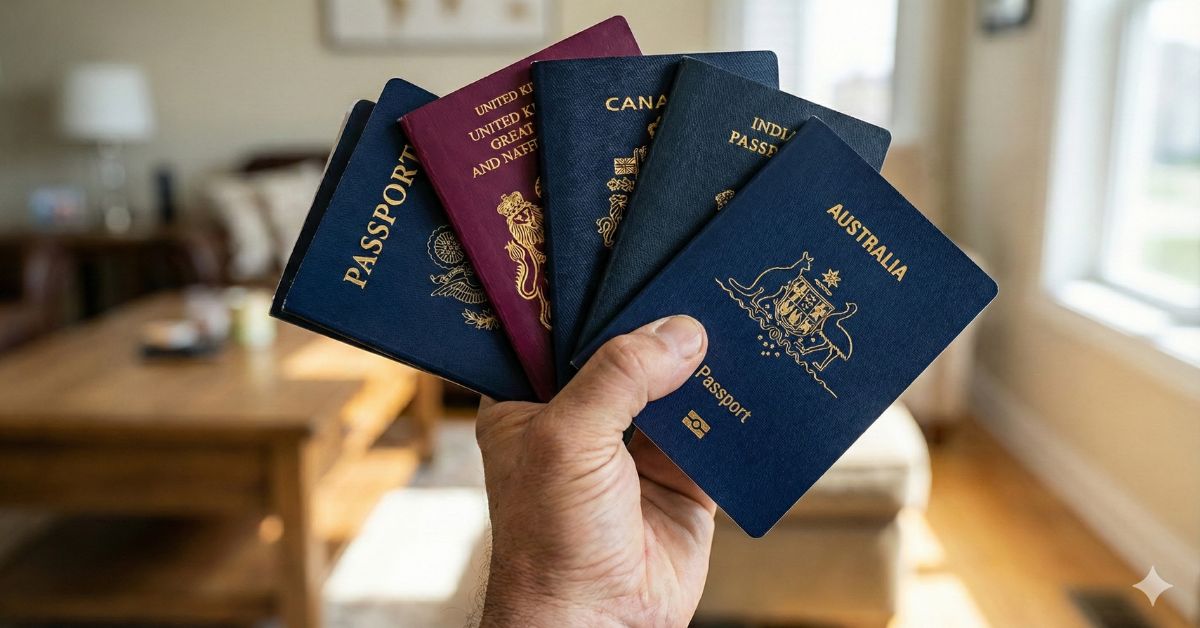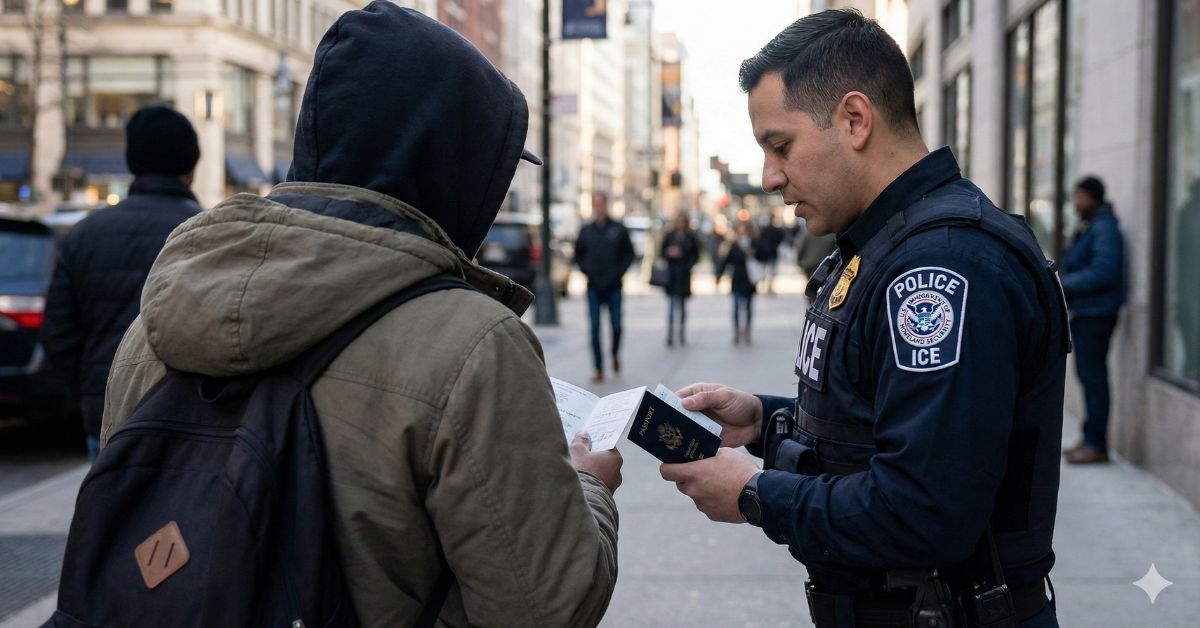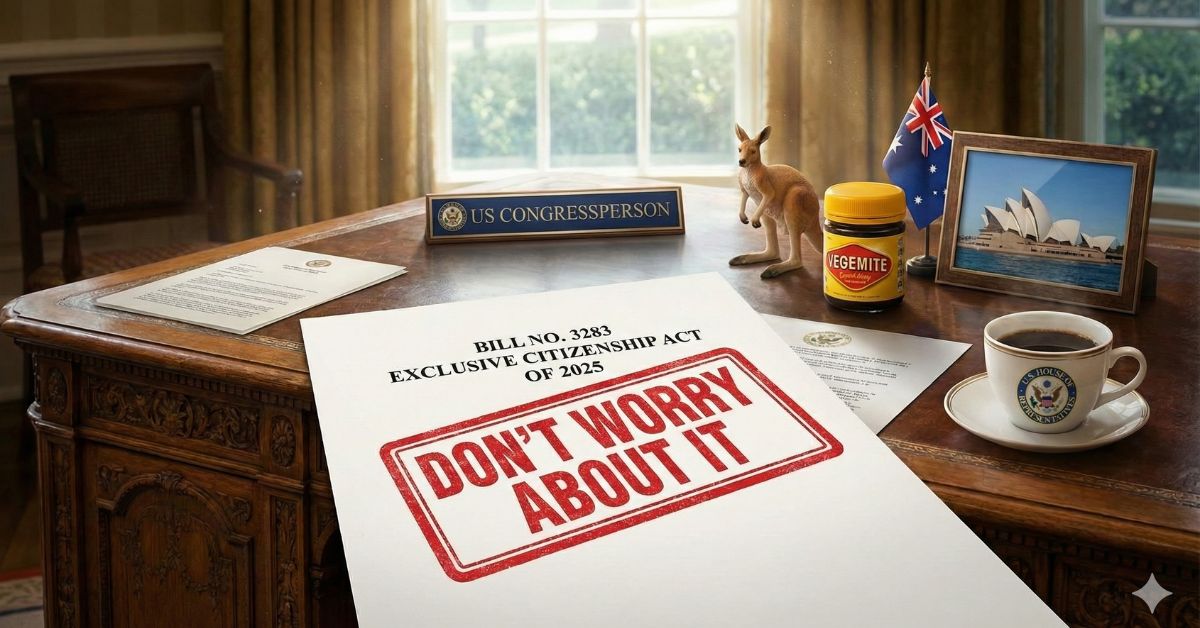As we blister through 2021 and everyone starts to turn their minds to future travel over the holiday period, I'm seeing that questions surrounding entering and leaving the US and Australia are coming in more and more often! So what's the latest?
First things first, as a general and sweeping summary:
- The U.S. has not broadly limited those who want to enter or exit the U.S. (but there are important exceptions below);
- Australia has limited both those who can come in and those who can leave.
So let's go through each of these and I'll direct you to some more information:
How do I exit the United States?
You simply need to get a flight. You are free to leave! There are no conditions beyond the changes to flights and the requirements of airlines for masks and other distancing requirements.
Flights are a bit different in that you must wear a mask from the time you enter the airport until you leave the airport at the other end. Flying is a lot less pleasant without all the roaming around the cabin and in some cases, limited snacks, but you'll survive.
If you're looking for flights and need a contact, then send me an email and I'll connect you to someone great.
How do I exit Australia as a non-Australian citizen?
This one is a little different and you can find the official information at covid19.homeaffairs.gov.au. Always trust the official source. If you read something there that is different, then that is the Bible of information and the truth.
Very important note to start: If you are a dual-citizen and one of those citizenships includes Australia, then Australia counts you as an Australian citizen, so you will need to read the below section (not this one).
If you are a temporary visa holder or a foreign citizen currently in Australia, then you are welcome to get on a plane and leave right away. Returning to Australia will be an issue though if you do leave, so keep reading below. If you are planning on permanently leaving Australia, then you will be fine. In fact, the Australian Government recommends it. You won't have any issues, just go to the airport as normal.
From the official Home Affairs website:
Temporary visa holders impacted by COVID-19 can make arrangements to return to their home country, if border restrictions in that country allow.
Temporary visa holders do not need an exemption to depart Australia. They can leave at any time, as long as border restrictions in their home country allow them to return.
Remember the COVID-19 situation continues to change.
https://covid19.homeaffairs.gov.au/leaving-australia
How do I exit Australia as an Australian citizen (or Permanent Resident)?
If you are an Australian Citizen or Permanent Resident you are going to have a slightly more difficult time leaving as the Australian Government has limited movement.
If you are an Australian citizen or a permanent resident you cannot leave Australia due to COVID-19 restrictions unless you have an exemption.
https://covid19.homeaffairs.gov.au/leaving-australia
You can apply online for these exemptions but you must meet at least one of the following requirements:
– your travel is as part of the response to the COVID-19 outbreak, including the provision of aid
https://covid19.homeaffairs.gov.au/leaving-australia
– your travel is for your business/employer
– you are travelling to receive urgent medical treatment that is not available in Australia
– you are travelling outside Australia for a compelling reason for three months or longer
– you are travelling on compelling or compassionate grounds
– your travel is in the national interest
– you are ordinarily resident in a country other than Australia.
In order to check these boxes, you must provide evidence to support your claims. If you don't provide sufficient evidence, they may simply deny you. Evidence for the above requirements can include:
– passport/s
https://covid19.homeaffairs.gov.au/leaving-australia
– marriage certificate/s
– birth certificate/s
– death certificate/s
– proof of relationship (for example, shared tenancy agreement, joint bank account etc. – more here)
– proof that you are moving to another country on a long term basis such as leases, job offers and evidence your goods are being transported
– proof of your current valid visa, including in Australia and/or overseas
letter from a doctor or hospital about any medical treatment/condition with statements on why travel is necessary
– letter from your employer, or other evidence that you are travelling for a business reason
– statement or evidence to show when you wish to return to Australia
– any other proof you may have to support your claims.
There used to be an automatic exemption for those who are normally resident in another country, however that is no longer the case. You will now need to file online (details below)
So how do you prove if you are ordinarily resident in another country?
Most people reading this website will be looking to prove this reason to be allowed to leave. So how do you show it?
As I mentioned above, the rules changed from August 11, 2021:
On 1 August 2021 the Minister for Health and Aged Care amended the Biosecurity Determination 2020. From 11 August 2021 Australian citizens and permanent residents ordinarily resident in a country outside Australia will not be automatically exempt from Australia’s outward travel restrictions. From this date, you must apply for a travel exemption through the Travel Exemption Portal.
https://covid19.homeaffairs.gov.au/leaving-australia#toc-2
So what kind of evidence counts to support this exemption?
Supporting evidence must be provided and may include:
– foreign government issued documentation
e.g. a foreign drivers license or foreign government issued residency card– evidence you have an established and settled home overseas
e.g. Tenancy/residential agreements, utility bills, rate notices– evidence you are employed or have ongoing business interests overseas
https://covid19.homeaffairs.gov.au/leaving-australia#toc-2
letter from your employer/employment contract in a foreign country, business tenancy agreement
Please note: Having a visa for working in the U.S. is not enough to prove foreign residency. You need to show that you actually reside abroad, not that you could reside abroad. Unfortunately, right now that means that if you've just been approved for a new job (and haven't been living abroad), you will have to apply for a different type of exemption below.
I've been speaking to community members and we've heard of the following items being used in addition to the above. The more information, the better!
- Residential leases;
- Payslips;
- Work contracts;
- Letters from employers;
- Utility bills;
- Photos;
- Entry/exit information from the US;
- Invoices/bills/receipts;
- Flight receipts;
- Licenses and registrations;
- Visa information*.
Basically, you should build as much evidence as you can carry to save yourself any trouble. If you've got all of those things, print it out, and put it on a USB as well so that you've got backup!
How do you prove a compelling reason to travel for more than 3 months in another country?
Ok so the rules for this one tightened up too:
If you are seeking exemption from Australia’s outbound travel restrictions on the basis that you are leaving Australia for three months or longer, your proposed travel must be for a compelling reason and you must provide evidence to support your claims.
https://covid19.homeaffairs.gov.au/leaving-australia#toc-3
It used to be just proof of 3+ months, and now they've added “compelling”.
The first thing to note is that the evidence must be in the form of a Commonwealth Statutory Declaration. As with anything related to these rules, you should not lie or bend the truth, but especially not in this space as you will be committing a Federal crime.
The Commonwealth Statutory Declaration must state you are making an application for travel exemption on the basis that you intend to be absent from Australia for more than three months.
Evidence may include:
– confirmed flight itinerary, with return date of at least three months after departure date
– confirmation of leave from employment for three months
– enrolment confirmation for study
– a doctor’s certificate to support your claim you are travelling in order to provide care for sick family members
– any other matter you wish to raise in support of your request for exemption.
This one appears on the surface to be relatively easy to get, but you're going to want to refer to the above information about ordinarily resident travel to add additional proof. Adding as much information to your claim is best!
How do you get a travel exemption to leave Australia?
If you do qualify for one of the exemptions then you can apply online here which will allow you to fill in the appropriate forms.
You should apply for an exemption at least two weeks, but not more than two months before your planned travel and you should only make one single request, don't keep filing or it will take longer!
How do I exit if I don't qualify for an exemption?
Well, unfortunately, right now you can't.
Be sure to go through this page though and make sure I haven't missed any updates.
How do I enter the United States right now?
If you have a valid visa, Greencard, citizenship, or ESTA, you are permitted to enter the United States, as per usual.
There is however a list of countries who are blocked from entry if you are a non-US-Citizen (or are in a list of specified exemptions):
With specific exceptions, foreign nationals who have been in any of the following countries during the past 14 days may not enter the United States. For a full list of exceptions, please refer to the relevant proclamations in the links below.
- China
- Iran
- European Schengen area (Austria, Belgium, Czech Republic, Denmark, Estonia, Finland, France, Germany, Greece, Hungary, Iceland, Italy, Latvia, Liechtenstein, Lithuania, Luxembourg, Malta, Netherlands, Norway, Poland, Portugal, Slovakia, Slovenia, Spain, Sweden, Switzerland, Monaco, San Marino, Vatican City)
- United Kingdom (England, Scotland, Wales, Northern Ireland)
- Republic of Ireland
- Brazil
- South Africa
- India
If you are on this list, you must travel somewhere else (assuming they will let you in) and be there for 14+ days before you will be allowed to re-enter the US. They are very strict about this and you will not be able to board the plane. So don't make this mistake.
Very importantly, this includes if you even commute through one of these locations and it does not matter if you stay air-side:
Transiting a country covered by the proclamation (including the UK), even without exiting the airport, counts as physical presence within that country and triggers the application of the proclamation.
https://uk.usembassy.gov/visas/u-s-visa-and-travel-faqs/
Be sure to check this information and make use of the online tools at IATA to know where you can and can't go to and from. This page will allow you to click on any country around the world and discover what regulations are currently in place.
What do I have to do when I return to the US? Is there a quarantine?
Different states have different requirements but there is no Federal requirement beyond the CDC's recommendation that you self-isolate for 14 days.
Be sure to check with your local and state governments wherever you are to make sure there are no legal requirements.
Each state will have its own page of information about what is required but in most cases, there is a request that you isolate for a few days, get tested, and then base your behavior on the result of the test.
Can I enter Australia?
Citizens, permanent residents, and valid visa holders of Australia are permitted to return but may require exemptions and all will be placed in a compulsory 14-day quarantine at a hotel. We have information about that here from Lisa, who spoke to me about the experience, as well as the official information from the Australian Government here.
Before you leave, you do need to get a negative PCR test, whether you've been vaccinated or not:
A negative COVID-19 Polymerase Chain Reaction (PCR) test result is required for travelling to or transiting through Australia. Unless you are travelling on a quarantine-free flight from New Zealand, evidence of a negative COVID-19 PCR test taken 72 hours or less before your scheduled departure must be provided to your airline.
Masks must be worn on all international flights, including in airports. There are some exemptions to pre-departure testing requirements. More information can be found at the Department of Health website.
You must take this with you to the airport and they will ask to see this documentation. The test must be taken within 72 hours of your flight (not just getting the result). This is difficult so we've got a list of places in New York that can reliably turn this around.
You are automatically exempt from the travel restrictions and can enter Australia (without obtaining an individual exemption) if you are:
– an Australian citizen
https://covid19.homeaffairs.gov.au/travel-restrictions
– a permanent resident of Australia
– an immediate family member of an Australian citizen or permanent resident*
– a New Zealand citizen usually resident in Australia and their immediate family members
– a person who has been in New Zealand or Australia for 14 days or more immediately prior to arrival by air in Australia
– a diplomat accredited to Australia, including their immediate family members (each member of the family unit must hold a valid subclass 995 visa)
– a person transiting Australia for 72 hours or less
– airline crew, maritime crew including marine pilots
– a person recruited under the Government approved Seasonal Worker Program or Pacific Labour Scheme
– a person who holds a Business Innovation and Investment (subclass 188) visa.
If you do not fit one of these categories, you do need to apply for an individual exemption to enter Australia.
The list of individual exemptions to enter Australia can be found here.
Almost everyone entering Australia should also complete an Australia Travel Declaration.
You can find all information about exemptions and limitations on this page.
If you are an Australian citizen or Australian permanent resident who has been trying to return to Australia and have been unable to do so, you can register your details with the Department of Foreign Affairs and Trade (DFAT): https://covid19.dfat.gov.au/citizeninformation/s/
When are these rules going to change?
We don't know. Nobody does. Anyone suggesting anything is guessing or speculating.
Will vaccinations make me exempt from quarantine in Australia?
No, not at this stage.
Being vaccinated doesn't change anything stated above (but who knows, it might in the future).
Now, double-check everything I told you!
For Australian information, https://covid19.homeaffairs.gov.au/
For United States information, https://www.cdc.gov/coronavirus/2019-ncov/travelers



















Hi Josh, thanks for spelling all of this out! I just got my Australian Citizenship a couple of months ago. I’m American and have been living in Oz for 10 long years. I’m not vaxxed and have family that need my help back home. I planned on buying a one way ticket but it sounds like you have to purchase a round trip to prove you’ll be away for more than 3 months? Is this the case? I’m considering renouncing my citizenship if I need to. As a dual citizen Australia shouldn’t have the right to prevent me to return to my country of origin. Have you heard of anyone taking a legal route with this? Thanks!
Hi Dean, these rules have now changed since I’ve written this so I’ll try and update.
Hi Josh,
Do you still have a contact at Liberty travel to help with flights to Australia, with the current restrictions in Australia it looks like a lot of flights have been cancelled and there is little flexibility. Thanks
I can recommend getting in touch with Cindy Roque!
Hi Josh….If my partner who is PR in Australia and US Citizen gets an exemption to travel home to see his elderly parents, what is the chance of me going with him? Have you heard any situations like this?
Hey Simon! That’s a good question. Leaving Australia is obviously difficult, but if you can show why you need to be there, and that you will be away for 3+ months, you may have a chance! It would be worth contacting the Dept of Home Affairs.
Thanks Josh, sorry nope life, work home etc all in NJ USA……
Yes she has that standard ETA visa approval open until August 2022….
Thanks Josh, this update was extremely helpful…. A couple of questions, hopefully someone can help with is as follows,
1/ I am booked (I’m a dual citizen AUS/USA) for December to fly to Melbourne (now im broke, lol) with my American wife, when do I apply for her to enter Australia now or closer to the time!
2/ Also same for our approval to leave to come back home to the USA now or closer to the travel time, it looked like I could NOT apply as of yet?
Thanks again
Andrew
Hi Andrew!
1. Does your wife have a visa?
2. As for approval to leave, that advice from https://covid19.homeaffairs.gov.au/leaving-australia#toc-13 is “You should apply for an exemption at least two weeks, but not more than two months before your planned travel.” I’m not sure if you’re meant to already be in Australia to apply, so you should read that page in full first, but I didn’t see anything about requiring that.
Thanks Josh, sorry nope life, work home etc all in NJ USA……
Yes she has that standard ETA visa approval open until August 2022….
Oki doke, then yep, you need a travel exemption: https://travel-exemptions.homeaffairs.gov.au/tep
Hi Josh,
Thanks for compiling all this info! If I’m reading this correctly as a duel Australian / US citizen planning a permanent move to the US. Would I be correct in thinking that I’ll have to put in for an exemption under the “you are travelling outside Australia for a compelling reason for three months or longer” section?
Matt
Hi Matt! Yep that’s my understanding!
Hi Josh, thanks for taking the time to outline everything. I’m an Australian-born citizen, I’ve lived in the US the past 15 yrs. I’m looking to return to Australia for the rest of the year, with my wife and kids who are American citizens. We’ve read a lot about non-Aus spouses/families being rejected entry. Have you read/heard anything about this?
thanks,
Jason
Hi Jason, I’ve definitely heard stories of families being allowed in but you just need to make sure you check all the required steps! Everything you need is here https://covid19.homeaffairs.gov.au/immediate-family-australian-citizens-or-permanent-residents-or-new-zealand-citizens-usually-resident-australia
Hi….I have dual citizenship…Oz & USA. I have lived in USA for 20+ years. I am wanting to go back to Oz to see my elderly Mum. I think I do not need an exemption to enter or to leave Australia. ( this would be a trip of about a month.
Hi Jewl, you shouldn’t have a problem at all because you’ll show that for the last 2 years you’ve been abroad.
I am Aussie by birth but do have dual citizenship – I need to get back to the USA around July/August. I’m anticipating I can leave the Oz as I do have US citizenship, but my dilemma then is, how difficult would it be to get back to Australia if needed (my dad is elderly and not well).
Sharon
Hi Sharon, it is my understanding that dual citizens are treated as Australian citizens for the purposes of these limitations. Therefore, unless you fit into one of the exemption categories or you have “normally resided outside of Australia”, you will not be able to leave Australia. This is because when you leave, you leave on your Australian passport, not your US one.
If you are able to leave, you should have no issue returning though, as you are a citizen and can enter the country.
Does anyone have any experience with applying for exemptions to leave Australia? Are they quite strict?
I have my E3 visa already (my company has offices in both AU and US) but would need to apply for an exemption to leave.